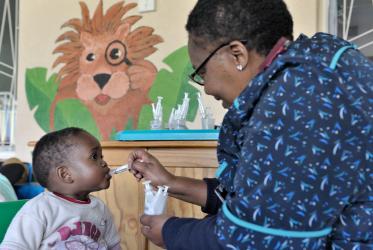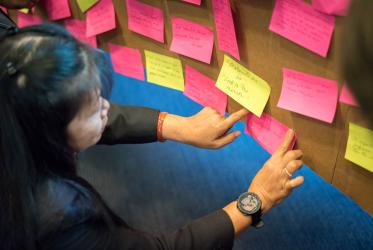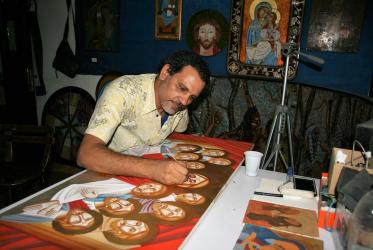Displaying 1 - 19 of 19
13 March 2019
Faith and HIV treatment go hand in hand
06 March 2019
Turning mercy and compassion into action
04 March 2019
On the journey to HIV – bridging gaps, debunking myths
21 February 2019
Dialogue addresses improving HIV testing and treatment for children
10 December 2018
Dr Cecile De Sweemer, the doer of God
30 November 2018
What difference does dressing in black make?
02 August 2018
Working toward an AIDS-free generation
26 July 2018
#WCC70: A prayer about health and healing
20 July 2018
WCC mourns passing of Calle Almedal
11 June 2018
New video presents Ecumenical Advocacy Alliance’s call to action
13 January 2016


















